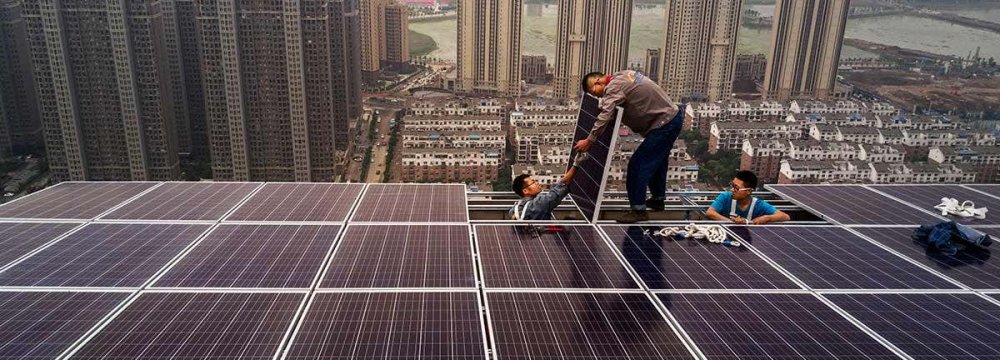
China’s Fight Against Pollution to Generate Billions in Solar Income

A team of researchers had calculated that China’s photovoltaic potential fell by about 15% between 1960 and 2015 because of growing pollution. As a result, by 2016, China was missing out on generating as much as 14 terawatt-hours of electricity from solar installations annually. That is enough to power 1.3 million households and it also cost local utilities almost $2 billion in lost power output, Oil Price reported.
Now that the government is actively working to reduce it, China could reverse the decline, boosting its solar power generation potential by 12-1%. This means that the country could boost its solar power output by 74 TWh by 2030. To utilities, this would mean an additional $6.7 billion in profits over the period.
China is the world’s leader in renewable capacity, especially in solar. Its installed solar capacity at the end of last year stood at 170 gigawatts, representing 9% of its total power generation capacity.
Yet, even China’s ambitious solar plans hit a snag when it became clear Beijing is paying too much in subsidies, as it set no limits to the amount of new solar capacity installed or its cost-competitiveness with alternative energy systems.
As a result, last year, China shocked the global solar industry by announcing it would not issue approvals for any new solar power installations by the end of 2018 and would also cut the feed-in tariff subsidy that has been a major driver of the solar business in the country.



Gold price edges up as market awaits Fed minutes, Powell speech

Glencore trader who led ill-fated battery recycling push to exit

Emirates Global Aluminium unit to exit Guinea after mine seized

Iron ore price dips on China blast furnace cuts, US trade restrictions

Roshel, Swebor partner to produce ballistic-grade steel in Canada

Trump weighs using $2 billion in CHIPS Act funding for critical minerals

US hikes steel, aluminum tariffs on imported wind turbines, cranes, railcars

EverMetal launches US-based critical metals recycling platform

Afghanistan says China seeks its participation in Belt and Road Initiative

Energy Fuels soars on Vulcan Elements partnership

Northern Dynasty sticks to proposal in battle to lift Pebble mine veto

Giustra-backed mining firm teams up with informal miners in Colombia

Critical Metals signs agreement to supply rare earth to US government-funded facility

China extends rare earth controls to imported material

Galan Lithium proceeds with $13M financing for Argentina project

Silver price touches $39 as market weighs rate cut outlook

First Quantum drops plan to sell stakes in Zambia copper mines

Ivanhoe advances Kamoa dewatering plan, plans forecasts

Texas factory gives Chinese copper firm an edge in tariff war

Energy Fuels soars on Vulcan Elements partnership

Northern Dynasty sticks to proposal in battle to lift Pebble mine veto

Giustra-backed mining firm teams up with informal miners in Colombia

Critical Metals signs agreement to supply rare earth to US government-funded facility

China extends rare earth controls to imported material

Galan Lithium proceeds with $13M financing for Argentina project

Silver price touches $39 as market weighs rate cut outlook

First Quantum drops plan to sell stakes in Zambia copper mines

Ivanhoe advances Kamoa dewatering plan, plans forecasts

















